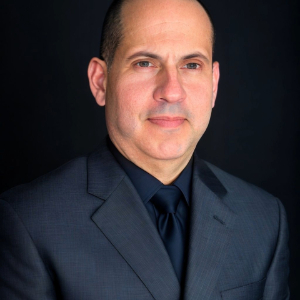
Attachment Is Not a Blame Game: A Culturally Respectful Guide for High-Achieving Asian Parents in Global Enclaves
Jun 11, 2025Parenting in the 21st century is complex enough. But for many affluent, highly educated Asian families—particularly those based in Hong Kong, Singapore, Taipei, Seoul, Shanghai, and other affluent urban centers across Asia—who have raised their children across cultural and geographic boundaries, the challenges become even more nuanced. Especially when a child begins to struggle emotionally or behaviorally, Western therapists may begin using words like "attachment wounds" or "developmental trauma"—language that, to many parents, can feel both foreign and accusatory.
But let us be clear from the outset: attachment is not about blame. It is about relationship. It is about understanding how a child’s emotional foundation is built—not through perfection, but through connection.
The Science of Attachment: What It Really Means
Attachment theory—first developed in the West but validated across cultures—simply describes how children develop emotional security. A securely attached child tends to feel safe, understood, and emotionally regulated in relationships. But security does not require constant praise or emotional overindulgence. Rather, it develops through small, repeated experiences of being seen, soothed, and supported.
In fact, research tells us that even the most attuned parents only get it “right” about 30% of the time. What matters most is not getting everything perfect, but being willing to repair when disconnection happens.
East Meets West: Cultural Context Matters
In many Asian families—especially among high-achieving households in cities like Hong Kong, Singapore, Taipei, and Seoul—love is expressed through action: providing the best education, ensuring a child’s safety, planning for their success. This is a powerful form of devotion.
In some cases, parents raise their children partially in Hong Kong or Singapore with a Western-influenced parenting style, intentionally preparing them for American boarding schools or college in the U.S. These children often live in two emotional and cultural worlds—one shaped by Confucian values of discipline and sacrifice, and another that emphasizes autonomy and emotional transparency.
However, many children who are educated abroad, particularly in the United States, are immersed in a culture that prizes emotional openness, individuality, and autonomy. This cultural dissonance can lead to emotional confusion. A child may begin to feel emotionally distant from their parents—not because the parents don’t love them, but because the way that love is expressed no longer matches the emotional language they’re learning elsewhere.
This isn’t a failure. It’s a mismatch. And mismatches can be repaired.
Why Your Child May Be Struggling
Children who were boarded, sent overseas, or raised with extremely high expectations may show signs of what therapists call “attachment distress”: difficulty with self-regulation, low self-worth, avoidance or anxiety in relationships, or compulsive behaviors (e.g., gaming, sex, or achievement addiction).
This isn’t a sign that parents failed. Rather, it’s a signal that some emotional needs weren’t fully met—and that healing is possible when we make space to listen, reconnect, and update our parenting for a new developmental phase.
Not a Diagnosis of the Past—An Invitation to the Present
It’s important to recognize that even deeply loving, intentional parents can find themselves facing a child with attachment wounds—and not because they lacked care, intelligence, or effort. The truth is, no generation can fully prepare for emotional needs they were never taught to recognize. The past 30 years have seen explosive advances in our understanding of emotional development, attachment science, and neurobiology. Much of this knowledge—such as the impact of misattunement or the role of co-regulation in brain development—was virtually unknown to previous generations.
Parents in these global enclaves—Hong Kong, Singapore, and beyond—have raised children within fast-moving, high-performance societies shaped by generational models of sacrifice, duty, and success. These values helped entire families rise from scarcity to prosperity. But emotional awareness and attunement—skills now emphasized in Western developmental psychology—require a different kind of literacy, one that society didn’t equip most parents to develop. How could they possibly have offered what no one had ever modeled for them?
When we reframe parenting challenges in this way, shame is no longer useful—because the reality is: you were never meant to do the impossible. You were asked by culture, circumstance, and history to prioritize success, protection, and provision. That was your version of love. And it was real.
Now, your child’s experience is asking for something new—not because your past efforts failed, but because human development is generational. Evolution takes time. And you, by even reading this, are helping lead the next step forward.
This is why willingness must be conscious and active. It involves:
-
Asking questions rather than giving advice.
-
Reflecting on moments of emotional shutdown, even when you thought you were “being strong.”
-
Creating space for your child’s version of events—even when it feels uncomfortable.
Willingness doesn’t mean admitting fault. It means being open to learning how your child’s emotional experience may have differed from your intention—and using that awareness to grow the relationship now.
Rather than thinking of attachment issues as evidence of flawed parenting, it may be more helpful to think of them as missed moments. Moments when a child needed emotional attunement, but the timing, culture, or life circumstances made it difficult. This happens in every family. The difference is not in whether these moments happen—but in whether we remain open to repairing them.
One of the most misunderstood ideas in attachment work is the role of willingness. Parents may say, “Of course I’m willing to reconnect—I love my child.” But willingness isn’t always obvious. It doesn’t always show up through intent alone.
Willingness, in the context of emotional repair, often requires us to do something profoundly difficult: to pause our own defenses and become curious about how our child experienced us—not how we intended to show up, but how it landed for them. That distinction is subtle, but vital.
High-functioning, successful parents may unintentionally communicate pressure, impatience, or emotional distance even while deeply caring. In systems of high achievement, love is often equated with provision and performance. Children raised in these environments may receive everything material—yet still long for emotional attunement.
This is why willingness must be conscious and active. It involves:
-
Asking questions rather than giving advice.
-
Reflecting on moments of emotional shutdown, even when you thought you were “being strong.”
-
Creating space for your child’s version of events—even when it feels uncomfortable.
Willingness doesn’t mean admitting fault. It means being open to learning how your child’s emotional experience may have differed from your intention—and using that awareness to grow the relationship now.
Rather than thinking of attachment issues as evidence of flawed parenting, it may be more helpful to think of them as missed moments. Moments when a child needed emotional attunement, but the timing, culture, or life circumstances made it difficult. This happens in every family. The difference is not in whether these moments happen—but in whether we remain open to repairing them.
Bridging the Gap With Compassion
Here are a few guiding principles that can help parents navigate this terrain:
-
Start with curiosity, not criticism. Ask your child about their emotional world. Listen more than you speak.
-
Understand the role of culture. Acknowledge that your parenting values come from a place of deep care—and that their needs may reflect a different but equally valid worldview.
-
Honor your own story. Reflect on how you were parented. What parts helped you succeed? What parts were emotionally difficult?
-
Give yourself grace. All parenting involves missteps. What matters is whether you’re willing to keep growing alongside your child.
Addiction as an Attachment Disorder: A Deeper Understanding
To fully understand why some children grow into adults who struggle with compulsive behaviors—whether in the form of gaming, substance use, pornography, or achievement addiction—we need to take the conversation further. Increasingly, neuroscience and clinical psychology are pointing to one central insight: addiction is not merely a behavioral issue or a moral failing—it is a symptom of disrupted connection.
World-renowned addiction expert Dr. Gabor Maté describes addiction as an attempt to cope with emotional pain—often deeply rooted in unmet attachment needs from early life. But this does not imply a failure of parenting. Quite the opposite: many of the very behaviors associated with addiction arise in high-functioning, well-resourced environments where parents are actively doing their best.
When children do not consistently experience a sense of being emotionally safe, seen, and soothed—not because their parents were uncaring, but because society did not yet value or model these emotional skills—they may unconsciously turn to other ways of regulating their internal world. These coping mechanisms can include stimulation (like technology or risk), control (through achievement or perfectionism), or numbing (through substances or escapist behaviors).
This doesn’t make them weak, spoiled, or broken. It makes them adaptive—and human.
This understanding is not an accusation. It is a compassionate reinterpretation that honors both the love of the parent and the emotional needs of the child. It also makes clear that these issues are not personal failures, but social and generational legacies now ready to be healed.
When we understand addiction this way, everything begins to make sense:
-
A high-achieving student suddenly collapses under pressure—not because they’re lazy, but because their sense of worth was never allowed to exist outside of achievement.
-
A young adult numbs with screens or sex—not because they lack discipline, but because they’re trying to regulate an internal void they don’t know how to name.
-
A teen rebels—not out of disrespect, but as a protest against emotional disconnection they don’t yet have words for.
Attachment-based therapy helps us recognize these patterns, not as diagnoses of dysfunction, but as clues to unmet relational needs.
And here lies the opportunity: What if addiction is not a life sentence—but an invitation? An invitation to revisit the emotional blueprint. To upgrade the relationship—not just with the child, but with oneself as a parent. To heal across generations.
You Are Not Alone
The truth is that many parents—of every culture—feel defensive or ashamed when hearing words like “attachment disorder.” But there is no need for shame. These frameworks exist not to assign blame but to guide healing. To show us where deeper connection is possible. And to remind us that parenting, at its best, is a journey—not a performance.
You’ve worked hard to give your child the best. This next step—emotional reconnection—may be the most powerful investment yet.
Don't miss a beat!
New moves, motivation, and classes delivered to your inbox.
We hate SPAM. We will never sell your information, for any reason.


